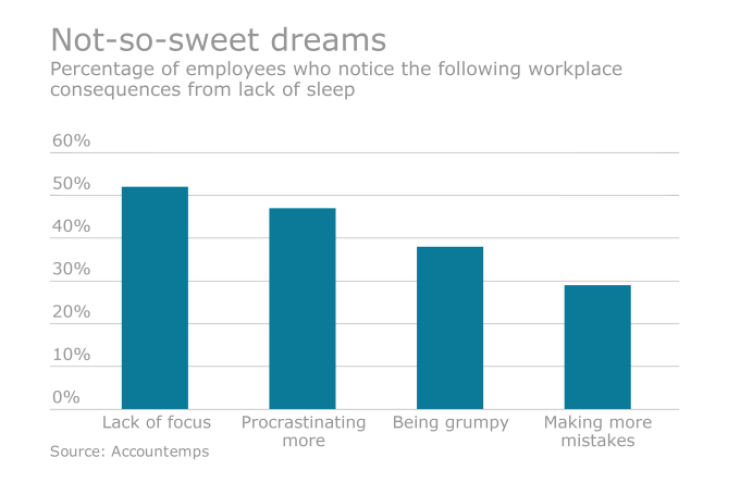Sleeping well and working well go hand in hand, but for the majority of Americans with sleep issues and disorders, arriving to the workplace refreshed is
“When a person doesn't sleep well, they're consuming a lot of services from the healthcare system and the economic impact lays on [the employer,]” says Amir Inditzky, CEO of
New Balance launched a pilot program with the app on Wednesday, providing all of their employees with access to the app. The program syncs with wearable technology, like Fitbits and Apple watches, and monitors sleep patterns and other behaviors that would be detrimental to quality sleep, like mobile usage, caffeine intake, and noise and light exposure.
“What we're doing every day is developing technology based on machine learning and AI in order to improve sleep quality. We collect data related to sleep but also day-to-day behavior, which is really important,” Inditzky says.
All of the information helps tailor a sleep plan specific to each individual. Users are given education on possible sleep disorders that may have gone previously undiagnosed, along with recommendations and reminders throughout the day to improve sleep.
For New Balance, partnering with dayzz was a fit when it came to improving their overall wellness benefits.
“We already offer programs that promote healthy diet and exercise, but we have no programs to promote healthy sleep,” says Glenn Haskell, benefits manager at New Balance. “We are all in on wellness, and sleep is such an important element in maintaining good health.”
Poor sleep is a problem for the majority of workers: more than half of employees say they don’t get enough sleep and 61% say lack of sleep has a negative impact on their work, according to a
“Inadequate sleep has become an epidemic,” says Dr. Mairav Cohen-Zion, a sleep expert and chief science officer for dayzz. “Research has shown that disturbed sleep is detrimental to people’s health and exacerbates a number of chronic health conditions, and reduces people’s sense of well-being, mood, energy, performance and overall quality of life both at home and at work.”
Tired and unproductive employees are a
While 69% of companies offer wellness programs that deal with physical and mental health and other stress-related issues, most employers are slow to see the benefits of helping employees improve their sleep habits specifically, Inditzky says.
“The reason a lot of employers don’t get it is because when they look at the health expenses, they find sleep low on the list, so therefore, a lot of employers don’t see the value of investing in improvements,” he says. “The reality is that conditions like obesity, metabolism issues, chronic diseases, mental health, depression — they're all related to sleep.”
Over the last several years, employers have started offering
Inditzky says apps and other digital sleep solutions are picking up steam as employers recognize the need to make sleep a priority.
“Sleep is very important and you can see a lot of new technologies in this domain,” he says. “The need is enormous and the market is enormous.”






